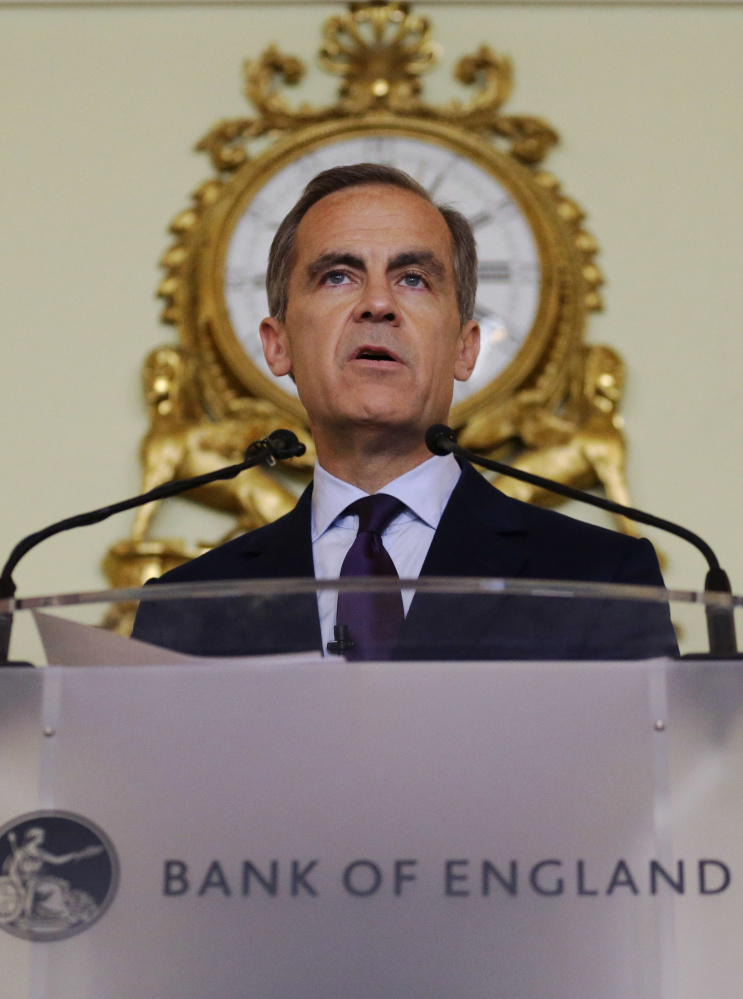LONDON — Don’t be fooled: The rebound in Britain’s main stock market to where it was before the vote to leave the European Union does not mean all is now fine for the country’s economy.
The index is dominated by multinationals that do not reflect the national economy, which the Bank of England’s chief said Thursday would need more monetary stimulus after last week’s vote plunged Britain into an existential crisis and opened up new uncertainties for businesses.
“The bank has identified the clouds on the horizon,” Mark Carney said in a speech. “The economic outlook has deteriorated and some monetary policy easing will likely be required over the summer.”
That could mean a cut to interest rates or an injection of billions more into the financial system at the next meeting in two weeks.
He warned, however, that the central bank could not protect the country entirely from an economic shock. And he stressed it was important for the government to have a plan in how to navigate the country through uncertainty – a thinly veiled dig at the disarray engulfing Britain’s main political parties.
Britain’s economy is facing a drop in investment among businesses as it remains unclear what trade relationship Britain will have with the rest of the EU. Some have frozen hiring and issued warnings that their earnings will be lower than expected. Others are considering relocating some jobs to mainland Europe.
Carney’s highly anticipated speech came as the FTSE 100 index rebounded to levels above where it was before last week’s vote. Some politicians interpreted that as evidence that there is renewed optimism about the country’s future, even outside the EU.
The FTSE 100 was up 2.3 percent Thursday at 6,504, above the 6,338 level before the vote.
The index, however, is a poor indicator for the U.K. economy, experts say, as many of its listed companies are multinationals that do most of their business outside the country and benefit from the pound’s big slide since the vote, include an 11 percent drop against the dollar.
Oil companies BP and Royal Dutch Shell make their money in dollars, the currency in which crude is priced internationally. So when they bring that money back to Britain and translate it into pounds, their revenues will be higher..
Send questions/comments to the editors.



Success. Please wait for the page to reload. If the page does not reload within 5 seconds, please refresh the page.
Enter your email and password to access comments.
Hi, to comment on stories you must . This profile is in addition to your subscription and website login.
Already have a commenting profile? .
Invalid username/password.
Please check your email to confirm and complete your registration.
Only subscribers are eligible to post comments. Please subscribe or login first for digital access. Here’s why.
Use the form below to reset your password. When you've submitted your account email, we will send an email with a reset code.